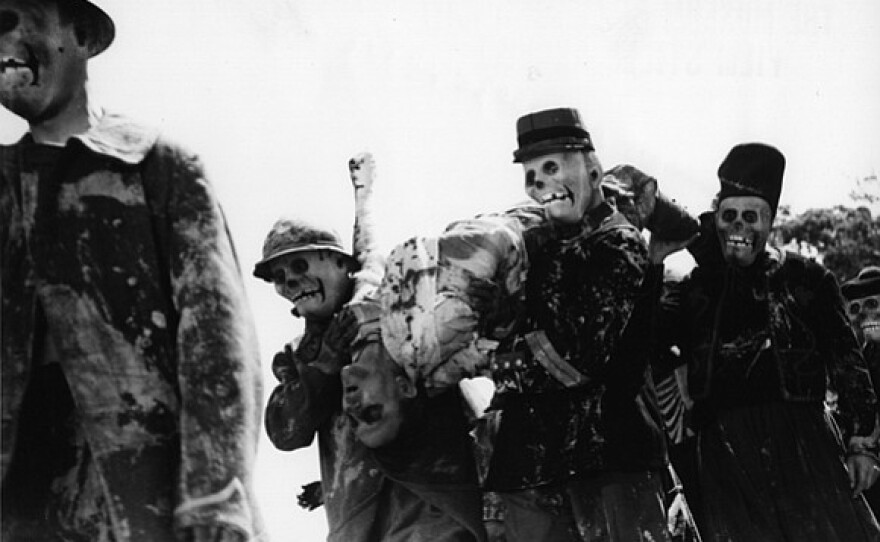The Doctor of the Dead, Arnold T. Blumberg uses zombies to teach media literacy and critical thinking. He has also just written a geeky, well-researched history of the zombie, "Journey of the Living Dead."
It's time for our annual checkup with the Doctor of the Dead to take the pulse of zombies today. Blumberg talks about zombie films to look forward to — such as the Christmas zombie musical "Anna and the Apocalypse" — as well as about his new book, "Journey of the Living Dead: A Tribute to 50 Years of Flesh Eaters."
I hesitate to call the book scholarly only because that word often carries with it a connotation of being dull and dense. But Blumberg has created a book that is well-researched, in-depth and insightful, but simultaneously fun, accessible and wildly engaging. He has tackled the undead before in both his book "Zombiemania" and in his classes at the University of Baltimore, where he has used zombies to teach media literacy and critical thinking.
Most people are familiar with George A. Romero's "Night of the Living Dead" and its various sequels, but Blumberg goes beyond just the familiar to focus on this modern American zombie.
His book looks to the roots of the zombie in Haitian Voodoo and in films going back to the silents. He explores various incarnations of zombies ranging from voodoo zombies controlled by others, to the somnambulist Cesare in "The Cabinet of Dr. Caligari," to how EC Comics used the undead in the 1950s, to drawing a direct line from "Night of the Living Dead" to "Get Out."
If you enjoy our conversation, please check out "Episode 59: The Self Aware Zombie" and "Episode 96: Zombies for Humanity."
You can also hear feedback from some students at San Diego State University about their zombie class.


